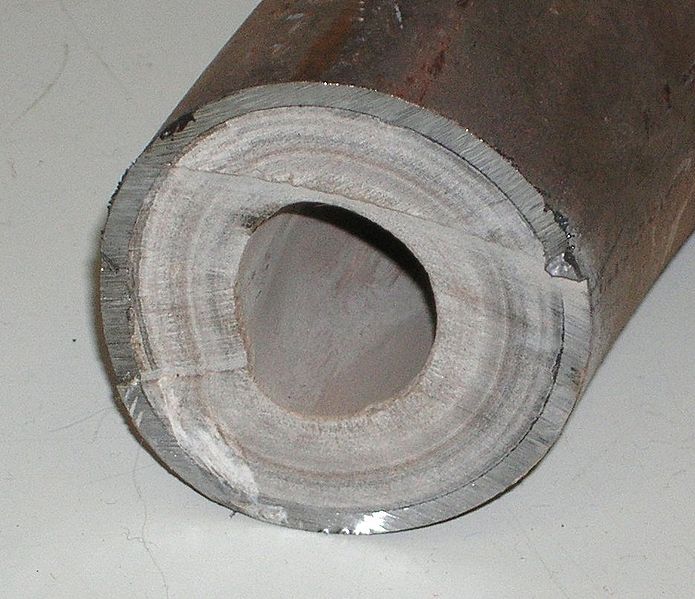Water Scale
What is Water Scale?
Water can contain a variety of dissolved substances, including minerals like calcium and magnesium, which given time and the correct conditions, can deposit on the surfaces of pipes and water applications to create water scale. These deposits, which although slow to form, can buildup and eventually reduce efficiency and water flow, and even damage equipment.
Most water applications are susceptible to scaling over time, but certain applications, such as those with heating elements (including boilers) are more susceptible to scaling and its effects. As water evaporates in a heating process, dissolved minerals are left behind to form on solid surfaces, and build up over time to form scale-like layers, which can reduce heat transfer to the surface.

Water Scale Buildup can Lead to:

Efficiency Loss
Scale can slowly buildup on the surface of pipes in important areas of a water system, which creates an insulating effect within the system. In boilers and cooling towers where heat transfer is vital to the operation of the application, a thin layer of scale can lead to a dramatic increase of energy usage.

Increased Costs
On many applications, including boilers and cooling towers, a thin layer of scale buildup can increase costs significantly. Proper water treatment can prevent this and help save money in the long run. Products like purified tannins can even remove scale that has built up over time.

Damaged Equipment
Too much scale in a water system can lead to clogged pipes or overheating, requiring costly maintenance or premature equipment failure. Water treatment can ensure the longest lifespan for your most important equipment.
Should Scale be Treated?
Scale in water is almost never beneficial and in most situations, can only lead to a reduction of water flow and lowered efficiency. So treating water to prevent scale buildup can only help. For businesses that rely on susceptible applications like cooling towers or boilers, treating water to prevent scale buildup (as well as other common issues like fouling and biological growth) is essential. Scale can severely hamper an application’s ability to function, and even a small amount can lead to major increases in costs such as fuel and water. To maximize the working lifespan of important equipment, and ensure that your water isn’t reducing the efficiency of an application, it is important to contact a water treatment specialist to create a plan to treat your water.
Many variables effect water treatment, and there is usually no one-size-fits-all solution to any given issue. Even between two similar applications, factors like pressure, temperature, and water makeup can yield different results that require different methods of treatment. Some water, for example, might contain more magnesium or iron, while water somewhere else contains more calcium. For the best treatment, it’s important to have the water tested, and a custom solution tailored to suit the specific needs of that water.
FCT Water has You Covered!
Have questions? Talk to one of our experts today to learn more about hard water scale and how a water treatment program can address this major issue along with others. Get in touch for a free system audit or ask about our other water treatment products and services!
